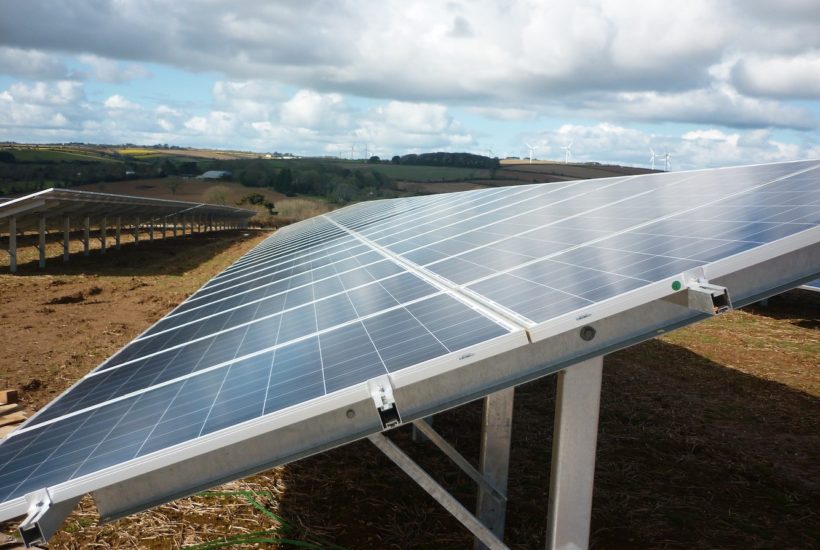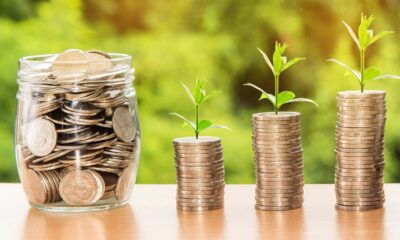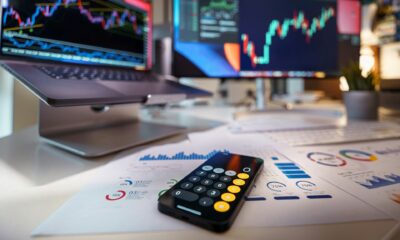Featured
Companies in Italy complain about the lack of clear rules on ESG
Italian companies complain that there are no clear rules to follow when it comes to ESG. According to a model developed by Mercer, if one would choose to invest in coal, the returns in 2030 would be negative (-7.1%). The same would happen if oil and gas were to be chosen (-4.5%). If, on the other hand, one decided to invest in renewable energy, the return would be 5.2%.

There is a lack of clear rules and best practices on ESG in Italy. To date, there are in fact several indexes, but there is no clear rule on what the common model is. This leaves companies disoriented because they do not know what they will be evaluated on and what information they should provide to be well perceived.
If you want to find more details about the problems companies are facing when it comes to integrating the ESG criteria in their investment strategies and to read the latest economic news in the world, download for free the Born2Invest mobile app.
In comparison to other European countries, Italy is on the right path
Gabriele Giordani, director of the Investor Relator Association (Air), during the conference on “ESG pension funds and investments” organized by EticaNews, explained how over time there has been an evolution within companies and how the ESG theme is increasingly important.
However, the absence of clear rules is not conducive to the further development of this issue. In addition to that, Giordani also pointed out that there are elements that are not material for a particular company, and that investors often ask for an account of them. In addition to precise rules – said the director – it should also be defined more flexible methodologies to be adapted to each company. It should therefore be avoided to draw up an endless list that then goes to penalize the rating of the individual company without a real reason.
If on the one hand, it is true that in Italy there is still a long way to go in the field of sustainability, on the other hand, it is necessary to consider the European and international context. In fact, if you look at it more broadly, you can see that Italy is not so bad in terms of ESG.
Luca De Biasi, wealth business leader Mercer Italia, explained how in many ways Italy is not lagging behind. For example, if the ESG investment policy is considered, 40% of pension funds responded positively. Internationally, the percentage rises to 55%. To this is added that the majority of those who responded to the research stated, at an Italian level, to choose the inclusion of ESG products because of the performance, while at an international level, the attention and choice of investment are unsatisfactory done more because companies were pushed by regulators.
Climate change is one of the main risks
With regard to climate change, only 17% of pension funds have considered investing in ESG because of the risks of climate change. A very low percentage. However, when compared to the European one (14%), it is respectable.
De Biasi also explained how over time the most important risks for companies are increasingly legal to climate change. This is one of the main reasons why companies and institutional investors are increasingly focusing on these risks. “Also because we can no longer wait. We are living in a world that has already had a major climate change and clients cannot ignore it,” said De Biasi.
“The risk cannot be ignored both because it affects the lives of all of us and the portfolio. We need to become more responsible and also make portfolios more resilient.” This means investing in all those aspects related to ESG issues.
According to a model developed by Mercer, if one would choose to invest in coal, the returns in 2030 would be negative (-7.1%). The same would happen if oil and gas were to be chosen (-4.5%). If, on the other hand, one decided to invest in renewable energy, the return would be 5.2%.
In conclusion, investing in sustainability is important not only to try to avoid business risks, and to preserve the environment, but also to try to stabilize more and more the portfolio of investors.
__
(Featured image by jaidee via Pixabay)
DISCLAIMER: This article was written by a third party contributor and does not reflect the opinion of Born2Invest, its management, staff or its associates. Please review our disclaimer for more information.
This article may include forward-looking statements. These forward-looking statements generally are identified by the words “believe,” “project,” “estimate,” “become,” “plan,” “will,” and similar expressions. These forward-looking statements involve known and unknown risks as well as uncertainties, including those discussed in the following cautionary statements and elsewhere in this article and on this site. Although the Company may believe that its expectations are based on reasonable assumptions, the actual results that the Company may achieve may differ materially from any forward-looking statements, which reflect the opinions of the management of the Company only as of the date hereof. Additionally, please make sure to read these important disclosures.
First published in WE WEALTH, a third-party contributor translated and adapted the article from the original. In case of discrepancy, the original will prevail.
Although we made reasonable efforts to provide accurate translations, some parts may be incorrect. Born2Invest assumes no responsibility for errors, omissions or ambiguities in the translations provided on this website. Any person or entity relying on translated content does so at their own risk. Born2Invest is not responsible for losses caused by such reliance on the accuracy or reliability of translated information. If you wish to report an error or inaccuracy in the translation, we encourage you to contact us.

-

 Cannabis2 weeks ago
Cannabis2 weeks agoCannaTrade Will Take Place from May 24th to May 26th, 2024 in Zurich
-

 Biotech1 week ago
Biotech1 week agoAI Will Revolutionize Mental Health, Generating 2.5 Billion in Spain
-

 Crowdfunding2 weeks ago
Crowdfunding2 weeks agoOpstart Buys Majority Stake in BackToWork
-

 Business5 days ago
Business5 days agoTopRanked.io Weekly Affiliate Digest: What’s Hot in Affiliate Marketing [LVBET Partners]

























